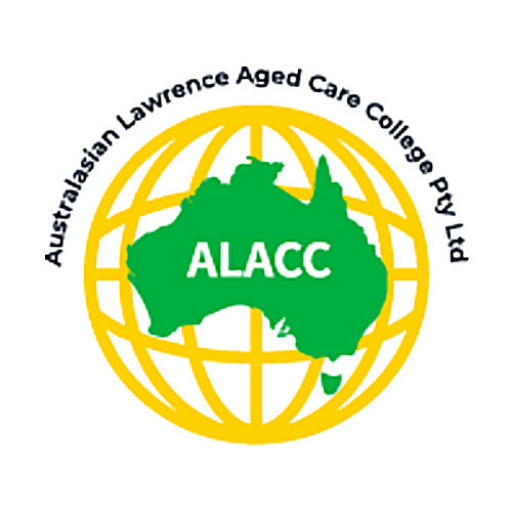Photos of university / #newcastleuni
The BSc Pharmacology program at Newcastle University Medicine Malaysia (NUMed) offers students a comprehensive and in-depth understanding of the biological and chemical processes that underpin drug action and therapeutic interventions. Designed to prepare graduates for a wide range of careers in healthcare, research, and the pharmaceutical industry, this programme emphasizes not only the fundamental principles of pharmacology but also their application in real-world settings. Throughout the course, students will explore various aspects of drug development, mechanisms of drug action, and the physiological and pathological basis of diseases. The curriculum integrates biomedical sciences, physiology, biochemistry, and molecular biology to provide a well-rounded scientific knowledge base. Students will have opportunities to engage in practical laboratory work, research projects, and internships, fostering critical thinking, experimental skills, and professional competence. The programme also emphasizes ethical considerations in drug development and use, highlighting the importance of patient safety and regulatory standards. With an emphasis on active learning and student-centered teaching methods, the course aims to produce highly skilled graduates capable of contributing to advancements in medicine and healthcare. Graduates of the BSc Pharmacology course will be well-equipped to pursue careers in pharmaceutical research and development, clinical research, regulatory agencies, or to further their studies through postgraduate programmes. The programme benefits from Newcastle University’s renowned academic expertise and state-of-the-art facilities, ensuring students receive a high-quality education that combines theoretical knowledge with practical skills. Graduates leaving this programme will be prepared to make meaningful contributions to improving health outcomes worldwide, making it an excellent choice for students interested in science, health, and innovation.
Detailed Course Facts
Application deadline January 15 Tuition fee- GBP 9000 Year (EEA)
- GBP 15490 Year (Non-EEA)
Duration full-time 36 months Languages Take an IELTS test
- English
Course Content
All of our Biomedical and Biomolecular Sciences degrees are divided into two phases:
- Phase 1 (Stage 1 and semester 1 of Stage 2)
- Phase 2 (semester 2 of Stage 2 and Stage 3)
Phase 1 provides a broad introduction to biomolecular sciences which is shared by all of our degrees. You can change between any of our degrees at the end of Phase 1 if you wish.
This flexible structure gives you the chance to try a broad range of topics, helping you to see where your interests lie in biomedical sciences before you specialise in pharmacology in Phase 2.
Each Stage lasts for an academic year and you need to complete modules totalling 120 credits by the end of each Stage.
Please be aware that programme modules do change and therefore may differ for your year of entry.
Stage 1
Compulsory modules
- BGM1002 Biochemistry
- CMB1004 Cell Biology
- BGM1004 Genetics
- CMB1005 Practical Skills in Biomedical & Biomolecular Sciences 1
- CMB1003 Microbiology and Immunology
- PED1003 Pharmacology
- PSC1002 Physiology
- CMB1006 Practical Skills in Biomedical & Biomolecular Sciences 2
Stage 2
Compulsory modules Semester 1
- CMB2002 Cell and Molecular Biosciences
- CMB2003 Molecular Medicine
- CMB2004 Cell and Molecular Biology of the Immune System
- CMB2005 Practical Skills in Biomedical and Biomolecular Sciences 3
Semester 2
- PED2001 Drug Disposition and Pharmacokinetics
- PED2005 Systems Pharmacology
- PSC2026 Cardiovascular System for Pharmacologists
Stage 3
Compulsory modules
- CMB3000 Project Or CMB3001 Experimental Design and the Process of Research Or CMB3002 Research Project for Exchange Students
- PED3001 Pharmacological Techniques
- PED3003 Clinical Pharmacology and Drug Development
- PED3005 Advanced Pharmacogenetics
- PED3006 Carcinogenesis and Anticancer Drugs
- PED3008 Advanced Topics in Neuropharmacology
- PED3011 Toxicology
- PED3012 Integrated Pharmacology
Optional modules
You take one of the following optional modules:
- PED3013 Research in Pharmacology
- BMS3003 Business for the Bioscientist
- BMS3015 Healthcare Organisation and Practice
- BMS3016 Science Communication
- BMS3022 Bioethics
English Language Requirements
IELTS band : 6.5 TOEFL iBT® test : 90
To study at this university, you have to speak English. We advice you to
take an IELTS test. More About IELTSRequirements
All candidates are considered on an individual basis. If your qualifications are not listed here, please see our additional entry requirements web pages to find out which other qualifications are considered.
- A Levels
AAA-ABB including Biology. Chemistry is required at AS level (minimum grade B) if not offered at A level. GCSE Mathematics and English Language required (minimum grade B) if not offered at A or AS level. General Studies and Critical Thinking not accepted.- Scottish Qualifications
AAAAA-AABBB at Higher Grade including Biology and Chemistry. Mathematics and English Language required at grade 2 Standard Grade (or Intermediate 2 equivalent) if not offered at Higher Grade. Combinations of Highers and Advanced Highers accepted.- International Baccalaureate
34-36 points with Biology and Chemistry at Higher Level grade 5 or above. Standard Level Mathematics or Mathematical Studies required at grade 4 if not offered at Higher Level.- Irish Leaving Certificate
A1A1A1A1B1 at Higher Level, including Biology and Chemistry.- Access Qualifications
Considered on an individual basis. These qualifications must be in a science subject and applicants must also have appropriate work experience.- BTEC Level 5 HND
Not acceptable for entry to this subject.- BTEC Level 3 Extended Diploma (formerly BTEC National Diploma)
Not acceptable for entry to this subject.- Cambridge Pre-U
D3, D3, D3 - D3, M2, M2 in Principal Subjects including Biology, and preferably Chemistry. GCSE Mathematics and English Language required (minimum grade B) if not offered at a higher level.- PARTNERS - A Levels
BBB including Biology. Chemistry is required at AS level (minimum grade B) if not offered at A Level. GCSE Mathematics and English Language required (minimum grade B) if not offered at A or AS level. General Studies and Critical Thinking not accepted.
The PARTNERS Programme is Newcastle Universitys supported entry route for students from identified schools and colleges. Find out more about the PARTNERS Programme.
- PARTNERS - BTEC Level 3 Extended Diploma (formerly BTEC National Diploma)
Not acceptable for entry to this subject.
The PARTNERS Programme is Newcastle Universitys supported entry route for students from identified schools and colleges. Find out more about the PARTNERS Programme.
- English Language Requirements
For this degree you will need a minimum score of IELTS 6.5 or equivalent.
Visit our International Students webpages to find out more about our English language admission requirements and English language support courses offered by INTO Newcastle University.
- International Foundation Programmes
If you are an international student and you do not meet the academic and English language requirements specified above, you should consider a preparation course at INTO Newcastle University, which will help to prepare you for study on this degree course. INTO Newcastle University is based on the University campus and offers a range of courses including the International Foundation in Biological and Biomedical Sciences.
Work Experience
No work experience is required.
Related Scholarships*
- Academic Excellence Scholarship
"The Academic Excellence Scholarship can provide up to a 50 % reduction in tuition per semester. These scholarships will be renewed if the student maintains superior academic performance during each semester of their 3-year Bachelor programme. The scholarship will be directly applied to the student’s tuition fees."
- Access Bursary
Bursary for UK students all subjects where the variable tuition fee rate is payable.
- Alumni Bursary
Alumni Bursary for UK Undergraduate students
* The scholarships shown on this page are suggestions first and foremost. They could be offered by other organisations than Newcastle University.
The Pharmacology program at Newcastle University Medicine Malaysia offers students a comprehensive education in the science of drugs and their effects on the human body. The program is designed to equip students with the knowledge and skills necessary for careers in drug development, clinical research, medicinal chemistry, and regulatory affairs. Throughout the course, students explore various aspects of pharmacology, including drug mechanisms of action, pharmacokinetics, pharmacodynamics, toxicology, and therapeutics. The curriculum integrates laboratory work, theoretical lectures, and research projects, providing a balanced approach to understanding both the scientific principles and practical applications of pharmacology.
Students benefit from state-of-the-art facilities and access to leading academic experts in the field. The program also emphasizes research competencies, encouraging students to participate in ongoing projects and develop critical analytical skills. International students are welcomed into a diverse academic environment that fosters collaboration and cultural exchange. Graduates of the program are prepared for further study or employment in pharmaceuticals, healthcare, academia, and regulatory agencies. The duration of the degree program aligns with standard undergraduate timelines, typically three or four years. Completion of the program may also provide a pathway toward postgraduate study or professional certification in pharmacology or related disciplines. The program adheres to the highest academic standards, ensuring graduates are well-equipped to contribute to advancements in healthcare and drug development industries worldwide.










